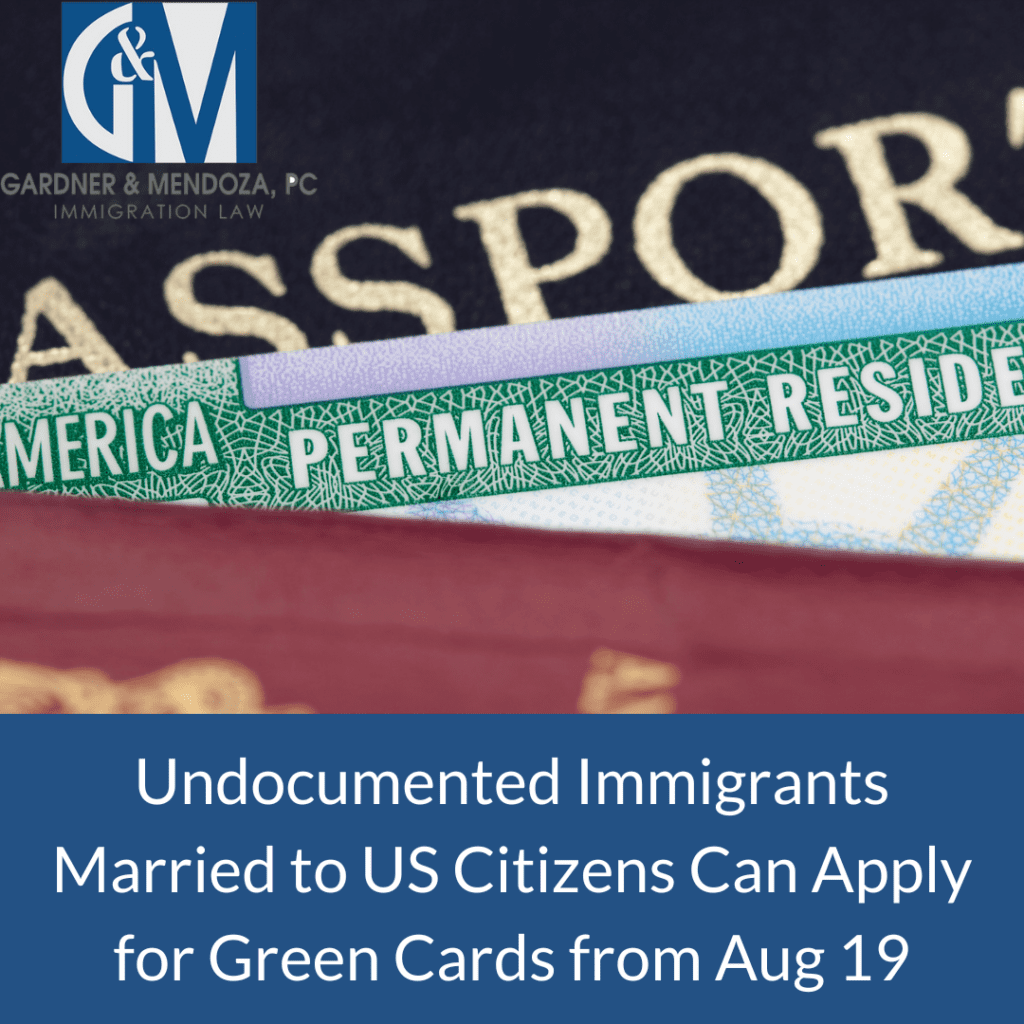
Certain undocumented immigrants married to U.S. citizens will be able to apply for residency in the United States under a new initiative intended to promote “family unity” after August 19.
At present, undocumented applicants married to American citizens have to return to their own countries and wait for months and even years for their paperwork to be processed. The Department of Homeland Security (DHS) announced a process to consider requests for parole in place for some noncitizen spouses of American citizens who have been living in the United States for at least a decade last month.
As family immigration lawyers, we are excited about the new process that will allow thousands of immigrants who are married to U.S. citizens to adjust their status without leaving the United States.
The Department of Homeland Security estimates that about 500,000 undocumented spouses and 50,000 children under the age of 21, stepchildren of US citizens, could potentially benefit from the program. People eligible for this process have resided in the US for an average of 23 years.
United States Citizenship and Immigration Services (USCIS) stated it is not currently accepting applications under Parole in Place. The agency will begin accepting applications on Aug. 19. Although you cannot file yet, you should consult an immigration lawyer and start preparing for the process.
How Do I Know If I Am Eligible for Parole in Place?
USCIS says eligibility is on a case-by-case basis. To be considered under the program you should:
- Be present in the United States without admission or parole;
- Have been continuously present in the country for at least 10 years as of June 17, 2024;
- Be legally married to a U.S. citizen as of June 17, 2024;
- Be free of any disqualifying criminal history or “otherwise constitute a threat to national security or public safety” and;
- Otherwise merit a favorable exercise of discretion.
USCIS will provide further information on eligibility criteria in a forthcoming Federal Register notice. The department will also consider some noncitizen children of requestors if they were physically present in the United States as of June 17, 2024, without admission or parole, and are stepchildren of U.S. citizens.
What You Can Do to Prepare for Parole in Place
Although USCIS is not currently accepting applications and will reject early applications, you can begin to prepare to file a parole application by gathering as much evidence of your eligibility as possible. You should be ready to make an application on August 19. Your lawyer can help you prepare to file. You will need the following documentation:
- Evidence that you were legally married to a U.S. citizen as of June 17, 2024. Be sure to find your marriage certificate.
- Documentation to prove your identity including;
- Your birth certificate with photo identification, if possible;
- Valid state or country driver’s license or identification;
- A valid passport; or
- Any government-issued document containing the requestor’s name, date of birth with a photograph.
- Evidence of your spouse’s U.S. citizenship, such as his or her passport, birth certificate or their Certificate of Naturalization;
- Documentation to show your continued presence in the United States for at least a decade, as of June 17, 2024.
USCIS says more information will be made available soon in the forthcoming Federal Register Notice but examples of required documentation could include copies of:
- Educational records such as report cards and letters;
- Rent receipts or utility bills;
- Medical records;
- Proof of your residency in the United States from churches, unions, or other organizations;
- Money order receipts for currency sent into or out of the United States;
- Birth certificates of children born in the United States;
- Car license or other automobile records;
- Dated bank transactions;
- Property deeds, mortgages, or rental agreement contracts;
- Insurance policies; or
- IRS tax returns or tax receipts.
Noncitizen children of requestors will need evidence of eligibility including:
- Evidence of your child’s relationship to the noncitizen parent. This should include a birth certificate or adoption decree;
- Evidence that the child lived in the United States as of June 17, 2024.
- Evidence of the noncitizen parent’s legally valid marriage to a U.S. citizen as of June 17, 2024, such as a marriage certificate.
Anyone interested in the Parole in Place process should consider creating or updating their USCIS account on the department’s website. USCIS is also warning potential applicants to beware of scams. Never pay for government application forms. The forms are free. You can download them here.
The family immigration lawyers at Gardner & Mendoza can help you with every step in the Parole in Place process. Please contact us via our website or call (757) 464-9224 to prepare for this exciting opportunity.